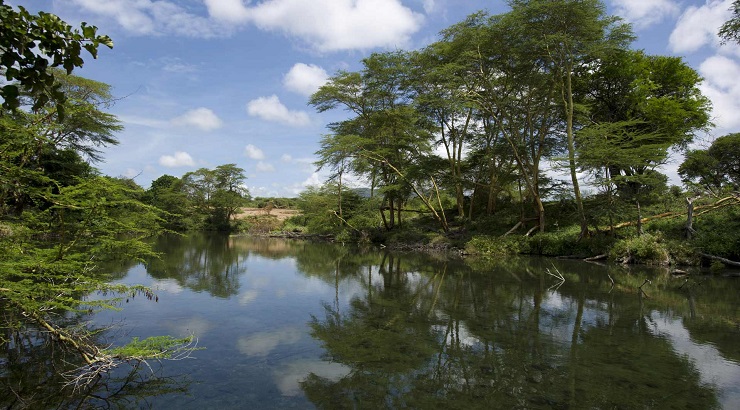Infrastructure
Fate of Sh35bn Mzima 2 Water Project Hangs in Balance
The project has proved too costly and unattractive to investors.

The fate of Taita Taveta’s Mzima 2 Water Project has been cast into uncertainty as the State considers scrapping it due to its high cost and the difficulty in attracting investors.
According to Water and Sanitation Cabinet Secretary Zachariah Njeru, the Sh35 billion project has been frozen while the government contemplates the best way to proceed.
Water is to be drawn from Mzima Springs, located along the Tsavo River, and channelled to the arid areas of Taita Taveta County.
The water will also benefit Kwale, Kilifi, and Mombasa counties.
Speaking before senators recently, Mr Njeru revealed that the project had been halted due to its high cost and lack of investor interest.
However, the CS emphasised that the government remains committed to ensuring the project moves forward as soon as possible.
“We realised it was expensive. We never got investors who would work with us. We are now going to re-advertise the project,” Mr Njeru told the Senate.
RELATED: How State Plans to Finance Sh995bn Mega Dams Project
The Mzima 2 Water Project was intended to supplement the existing Mzima Phase One, completed in 1966.
The project involves laying a 220-kilometre water pipeline from Mzima Springs in Tsavo West National Park to the coastal counties.
It will also include a water treatment plant, storage tanks, and distribution networks.
Mzima 2 Water Project is anticipated to relieve pressure on the ageing pipeline, which has often broken down, and to increase the volume of water supply to 186,000 cubic metres per day from the current 86,000 cubic metres.
While Kenya is embarking on putting up 100 mega-dams across the country over the next five years, the government has several short-term and long-term dam construction projects aimed at averting water crisis and improving food security and hydropower production.
A total of 56 dams have been presented for implementation under the PPP model.
The projects are to attract not less than Sh995 billion for the full implementation of the framework of the National Water and Sanitation Investment and Financing Plan by 2030.














